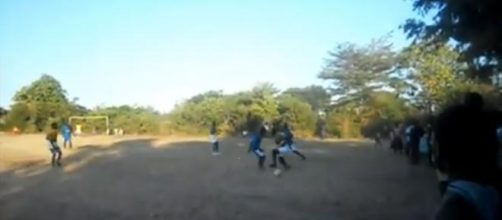When I have time on my hands, I manage a Facebook page called Amateur Scouting . At first, I invited good players to upload skills videos onto YouTube, intending to share them on the page to attract a wider audience and increase the chances of the videos being seen by a relevant person. However, as time went on, I increasingly used the platform to share upcoming trial dates in the UK and abroad. After a year lying dormant, the page is now coming to life again.
People sometimes write to the page asking how to get a trial for a specific club.
Many teams have messages like this on their websites: We do not hold open trials. If you are interested in playing for **** FC, please send a football CV and covering letter to this address. Do not telephone the club. But how should such documents be written? Follow this guide to increase the likelihood that your CV will get the attention it deserves.
In your covering letter, you should include:
1. Your name
2. Your address
3. Your contact telephone number
4. Your age
5. Your date of birth
6. Your height
7. The position you play
8. The current team you play for
9. The forthcoming fixtures of your current team - at least two months' worth from the date of the letter
10.
Confirmation that you hold a British or EU passport, or have 'leave to remain' documentation.
You should compile, and include, a football CV which should contain the following information:
- Which teams you have played for, and when. Start with the most recent and work backwards.
- Achievements: trophies won, representative honours i.e. being chosen for a county or district side, being selected as captain of your team or similar.
Sample section of a football CV:
10 July 2012-Present: Darley Youth Football Club
First team striker. Won the Manchester and District Youth Cup in May 2013, scoring six goals, including the opening goal of a 3-2 victory in the final.
Finally, include a DVD that showcases the strongest elements of your performance.
Warning: this is the most boring thing you, and a friend, will ever have to do, but it's thoroughly worth it. What you are doing is reducing the need for the club to physically send a human being, who will have to be paid, to come and watch you play. You are doing the work for them. Everyone likes that. They especially like to have it fall into their lap in the form of a physical disc. If this is completely impossible, a YouTube link might be OK, but remember that many chief scouts are advanced in years and could find the process of visiting a website as laborious as coming to watch you in person.
I've done this duty for a mate before. You need to find someone to film everything you do over the course of at least one football match.
Unless that one match turns out to be your best ever game, you might need your mate to film you playing in another game. How to convince them to spend three hours of their life pointing a digital camera in your general direction? Well, it might help if your friend also plays football and you could return the favour, or if they have a vested interest in your success, like being your mum and wanting you to put her through university rather than the other way round.
When you have a bulky and horrible mass of largely useless footage, it's editing time. You only want to show your club of choice the good stuff. Fortunately, every PC comes with Windows Live Movie Maker these days, and if a digital immigrant like me can edit videos using that, so can you.
Choose those scenes that show you at your best. Major on footage that demonstrates your 'normal' game and suitability for the position you play, but if you can also draw attention to your versatility - forwards tracking back, defenders taking the ball forward down the wings, etc - that can only be a good thing.
So, let's recap. Have you written a letter that includes the ten points above? Have you compiled and enclosed a football CV that shows off your achievements? Have you included a copy of your highlights DVD? Most importantly, have you been on your target club's website and ensured that you are sending them exactly what they have asked for? (Of course, there's nothing wrong with adding a DVD when this is not requested - only leave it out if the site specifically says no DVDs.)
If you've done all this and stuck it in an envelope, go back to the website, and find the address you're supposed to send such requests to.
If this is not explicitly provided, use the name of the director of youth development/Academy director etc, followed by the stadium address. You should be prepared to repeat this process a number of times, but you will be able to rest assured that you are doing it right.
Many thanks to Daniel Waters for helping me to write this guide.

